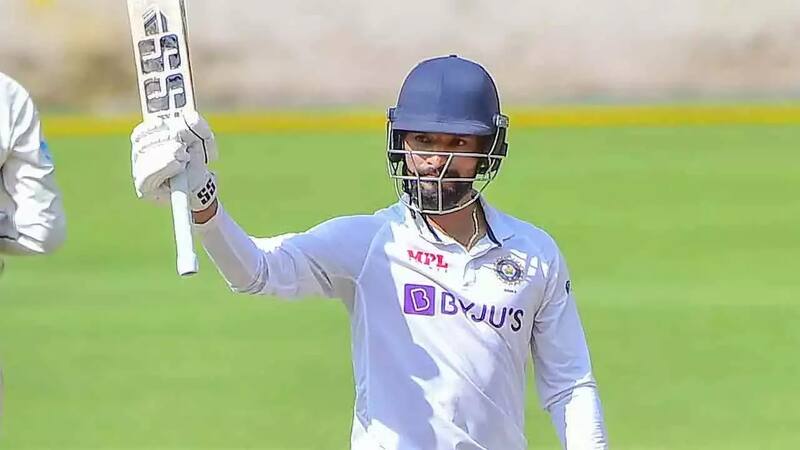
Cricket Country Staff
Editorial team of CricketCountry.
Written by Cricket Country Staff
Published: Feb 28, 2024, 04:30 PM (IST)
Edited: Feb 28, 2024, 04:30 PM (IST)

The BCCI selection committee and the leadership of Indian captain Rohit Sharma and head coach Rahul Dravid find themselves grappling with decisions concerning certain players ahead of the fifth and final Test against England, scheduled to commence on March 7 in Dharamsala. Despite the ample time remaining before the Test match, the fitness status of KL Rahul has emerged as a cause for concern within the Indian camp. Reports indicate that Rahul has flown to London to seek consultation from a specialist after experiencing ongoing discomfort in his right quadriceps, an injury that sidelined him for the last three Tests against England.
The selectors face a pivotal decision, likely to be made by March 2, when the players are scheduled to reconvene in Chandigarh before embarking on a chartered flight to Dharamsala. If Rahul, who was deemed “90% fit” per a BCCI press release before the third Test, fails to fully recover by then, the selectors may be compelled to persist with Rajat Patidar in the squad, a scenario they are eager to avoid. According to reports from The Times of India, the selectors are inclined to release Patidar from the India Test squad, enabling him to participate in the Ranji Trophy semi-final for Madhya Pradesh against Vidarbha on March 2. Patidar’s underwhelming performances thus far in the series, coupled with his inability to capitalize on opportunities, have raised concerns among the selectors. With his highest score in six innings standing at 32 and having suffered two ducks, Patidar’s inconsistency at the pivotal No.4 batting position has exacerbated selectors’ apprehensions.
ALSO WATCH:
However, the ultimate decision regarding Patidar’s participation hinges on Rahul’s fitness. Should Rahul regain his form in time for the Test, the team management sees little justification in retaining Patidar in the squad. Nonetheless, there remains a possibility of Patidar being retained if Rahul is unavailable, thereby necessitating an additional batter in the team, particularly in light of potential concussion substitutions, as suggested by a source cited in The Times of India.
Yet, Rahul’s fitness poses a significant obstacle to executing this proposed strategy. Despite multiple scans and assessments by the National Cricket Academy (NCA) medical team, no alarming findings have been detected in Rahul’s quadriceps. Nevertheless, his persistent complaints of pain and discomfort have prompted a decision to send him to London for consultation with the specialist who previously treated him. Rahul’s injury saga, characterized by uncertainty and ambiguity, underscores the complexities inherent in managing athletes’ fitness and well-being amidst rigorous competition schedules.
A source familiar with the situation elaborated on the intricacies surrounding Rahul’s injury, highlighting concerns stemming from his extensive workload during the World Cup and the Test series in South Africa. While initial scans revealed no cause for major alarm, some degree of inflammation was noted, prompting consultation with the specialist in England. Rahul’s journey to London epitomizes the meticulous approach taken by medical professionals and team management in addressing players’ health concerns, prioritizing their long-term welfare over immediate on-field participation.
In sum, the conundrum surrounding KL Rahul’s fitness and Rajat Patidar’s potential role in the squad epitomizes the multifaceted challenges confronting the BCCI selection committee and Indian team management. As they navigate these complexities, their decisions will shape the composition and strategy of the Indian team for the crucial fifth Test against England, with implications extending beyond the immediate contest to the broader landscape of player welfare and team dynamics.
This website uses cookies so that we can provide you with the best user experience possible. Cookie information is stored in your browser and performs functions such as recognising you when you return to our website and helping our team to understand which sections of the website you find most interesting and useful.
Strictly Necessary Cookie should be enabled at all times so that we can save your preferences for cookie settings.
If you disable this cookie, we will not be able to save your preferences. This means that every time you visit this website you will need to enable or disable cookies again.
